Iceland volcano erupts again with huge plumes of lava visible from Reykjavik
It marks the sixth eruption in the island nation boasting of 30 active volcanoes
Your support helps us to tell the story
From reproductive rights to climate change to Big Tech, The Independent is on the ground when the story is developing. Whether it's investigating the financials of Elon Musk's pro-Trump PAC or producing our latest documentary, 'The A Word', which shines a light on the American women fighting for reproductive rights, we know how important it is to parse out the facts from the messaging.
At such a critical moment in US history, we need reporters on the ground. Your donation allows us to keep sending journalists to speak to both sides of the story.
The Independent is trusted by Americans across the entire political spectrum. And unlike many other quality news outlets, we choose not to lock Americans out of our reporting and analysis with paywalls. We believe quality journalism should be available to everyone, paid for by those who can afford it.
Your support makes all the difference.A volcano in southwestern Iceland has erupted for the sixth time since December, spewing bright orange lava plumes high into the air.
The eruption began at 9.26pm local time on the Reykjanes peninsula, near the abandoned town of Grindavik, following a series of earthquakes, according to the Icelandic Meteorological Office. The total length of the fissure was about 3.9km and extended by 1.5 km in about 40 minutes, it added.
Residents of the capital Reykjavic posted on social media that they could see the plumes of lava rising from about 50km away.
Live streams from the volcano on the Reykjanes peninsula showed glowing hot lava shooting up from the ground, their bright yellow and orange colours set in sharp contrast against the dark night sky.
"The impact is limited to a localised area near the eruption site. It does not present a threat to life and the area nearby was evacuated," Iceland’s Ministry for Foreign Affairs said on X.
“Iceland’s authorities are well prepared for seismic and volcanic activity which occurs regularly as a feature of our country’s natural geography.”
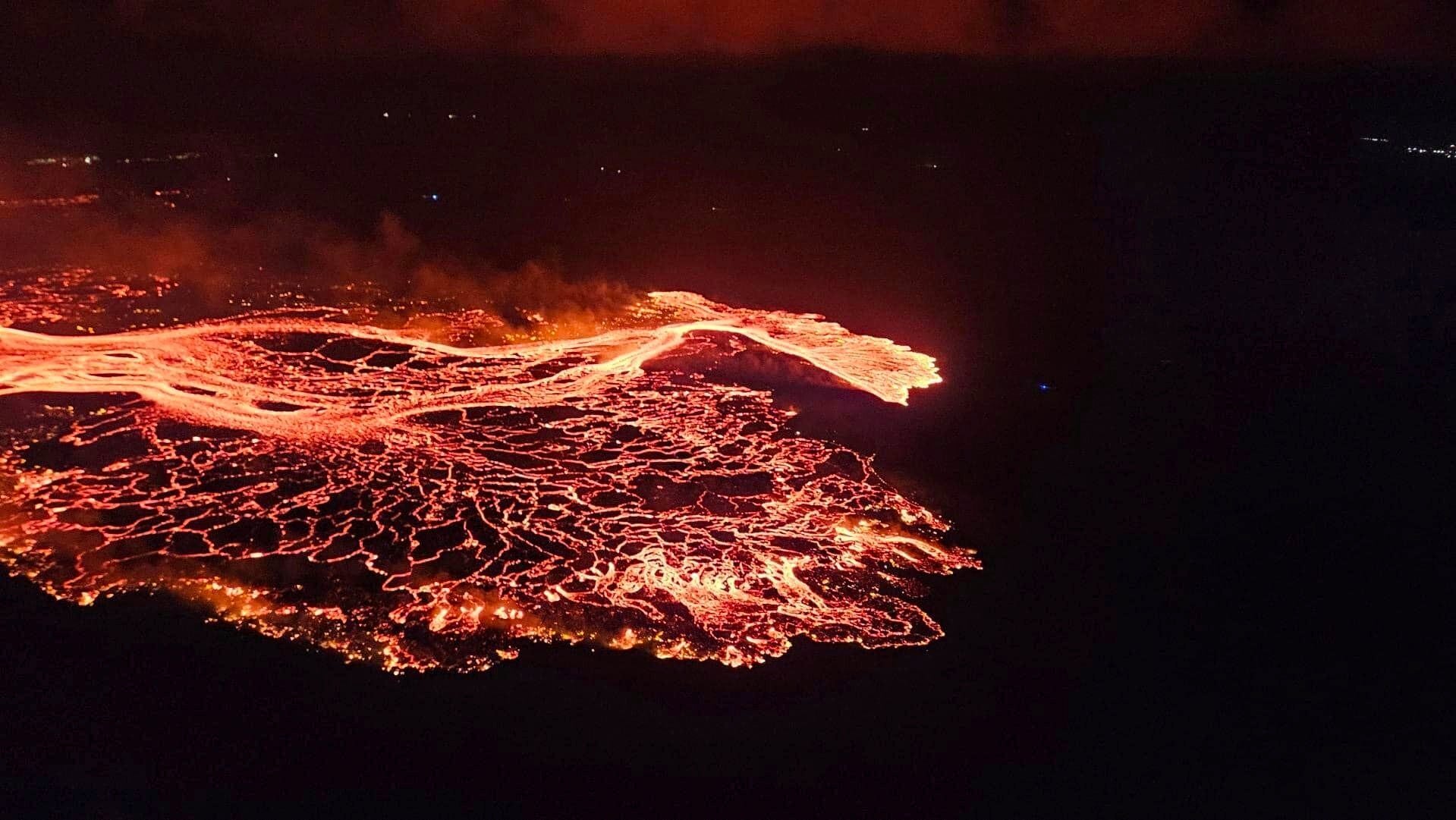
The lava was not flowing towards the nearby Grindavik fishing town, whose nearly 4,000 residents have been mostly evacuated since November, the Met office said.
The eruption took place on the Sundhnukar crater row east of mountain Sylingafell, partly overlapping the other recent outbreaks on the Reykjanes peninsula, in a volcanic system which has no central crater but erupts by opening giant cracks in the ground.
Studies had shown magma accumulating underground, prompting warnings of new volcanic activity in the area located just south of Iceland‘s capital, Reykjavik.
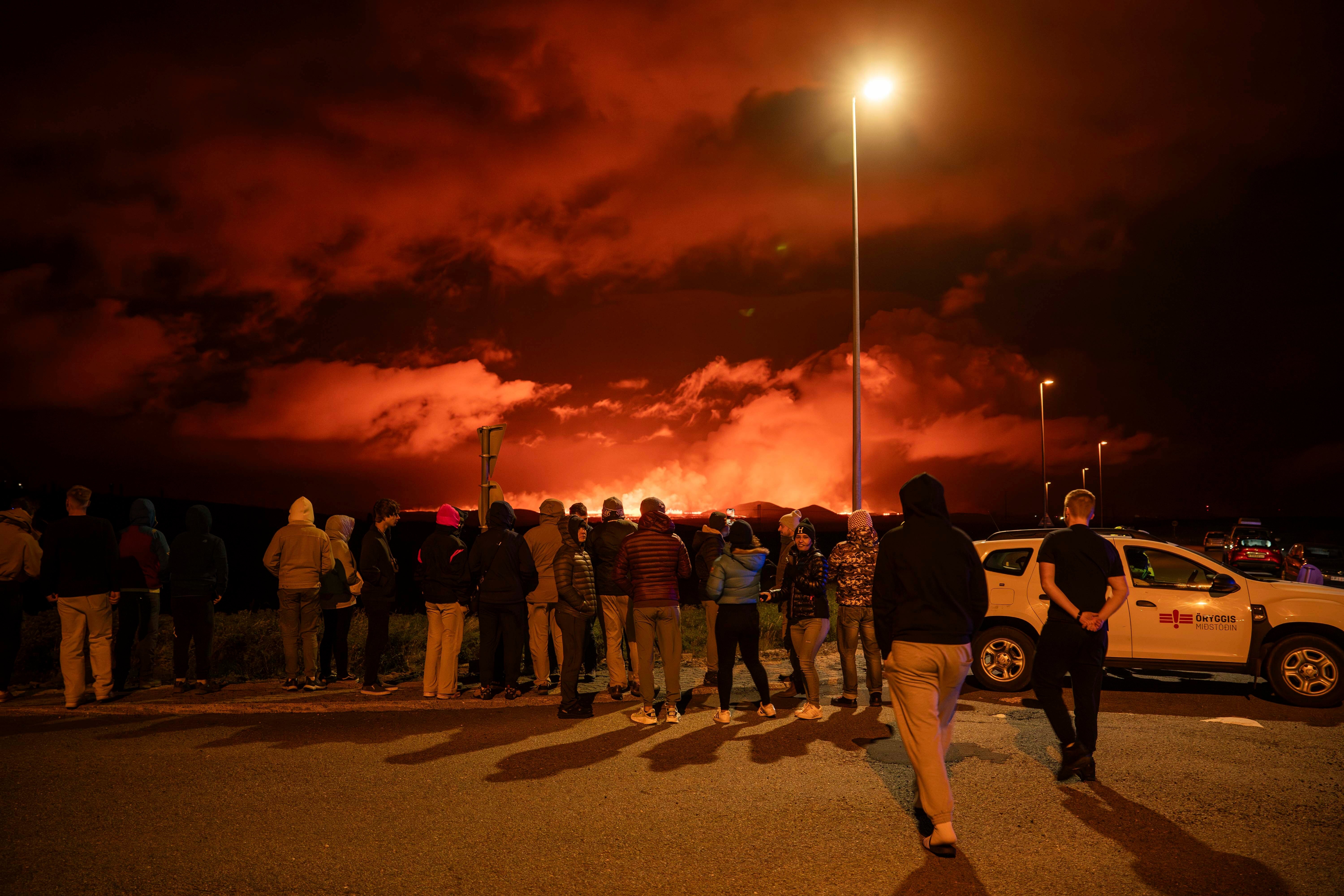
The most recent eruption on the Reykjanes peninsula, home to some 30,000 people or nearly eight per cent of the country’s total population, ended on 22 June after spewing fountains of molten rock for 24 days.
The eruptions show the challenge faced by the island nation of nearly 400,000 people as scientists warn that the Reykjanes peninsula could face repeated outbreaks for decades or even centuries.
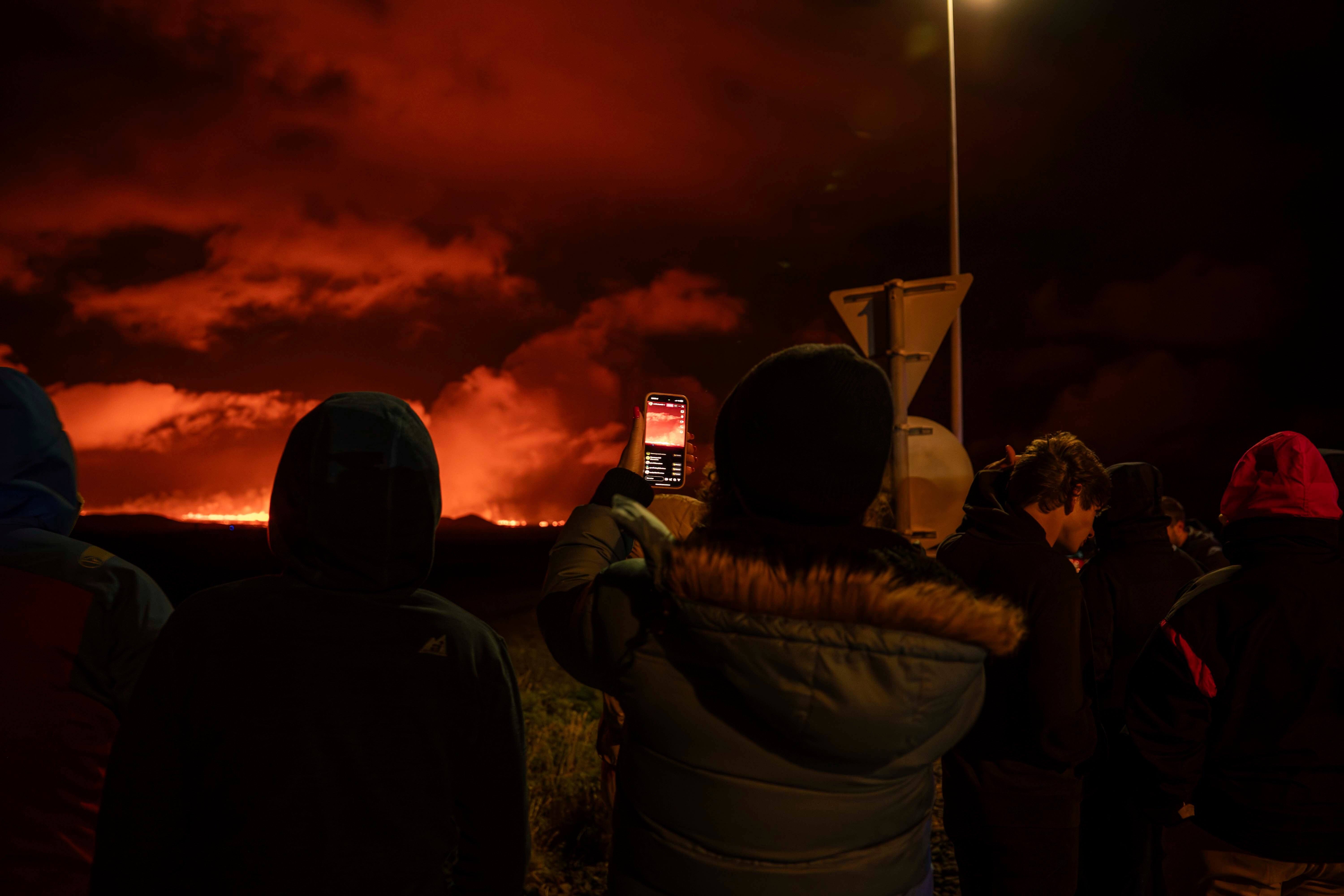
Since 2021, there have been nine eruptions on the peninsula, following the reactivation of geological systems that had been dormant for 800 years.
Grindavik, a town of 3,800 people about 50km south-west of Iceland‘s capital Reykjavik, was evacuated in November last year when the Svartsengi volcanic system awakened after almost 800 years with a series of earthquakes that opened large cracks in the earth between the town and Sylingarfell, a small mountain to the north.
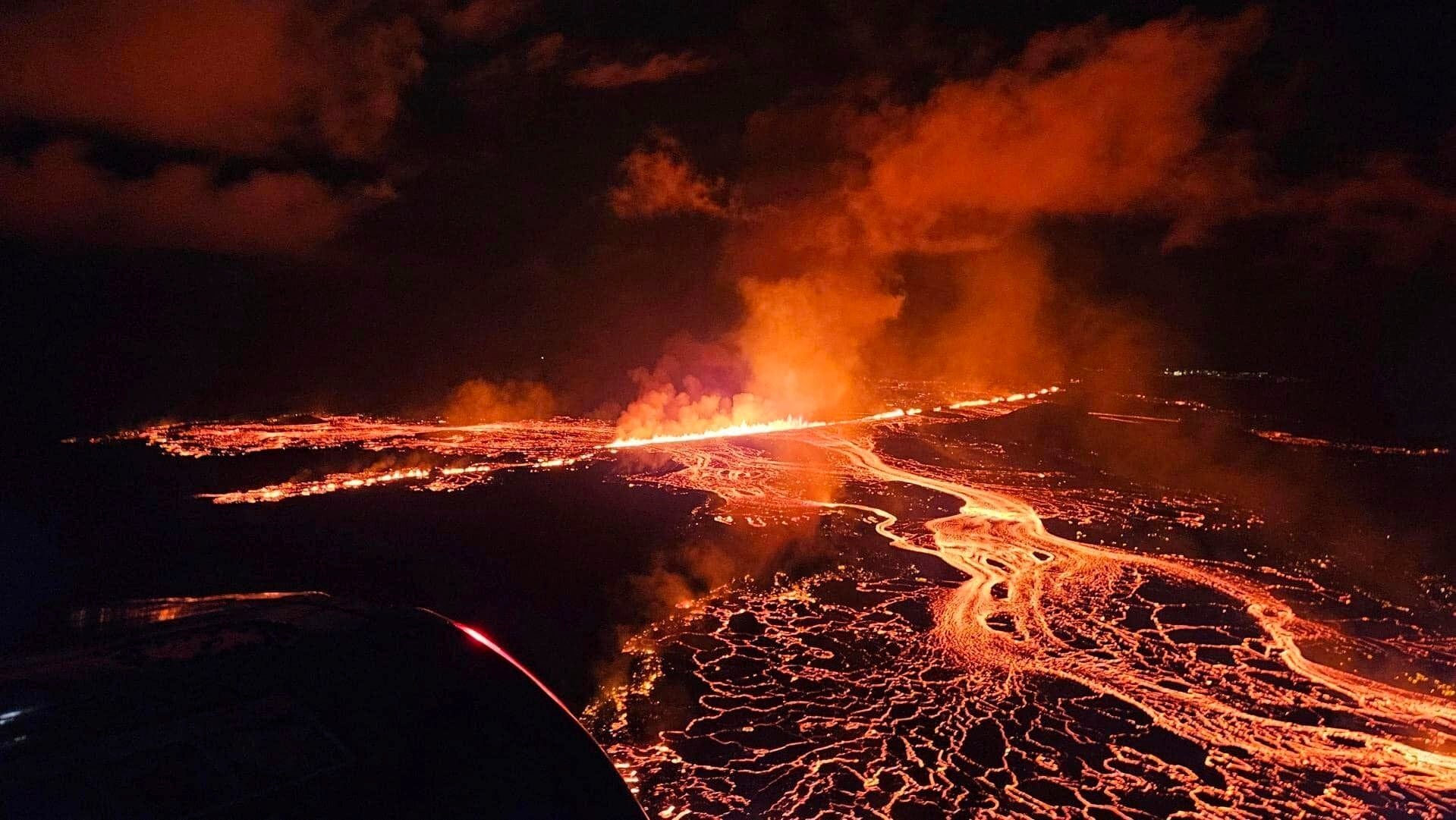
The volcano eventually erupted on 18 December, sending lava flowing away from Grindavik.
A second eruption that began on 14 January sent lava towards the town. The third eruption took place in February, when Sylingarfell volcano, located about 3km north of the town Grindavik in the southwestern part of the country, began spewing lava.
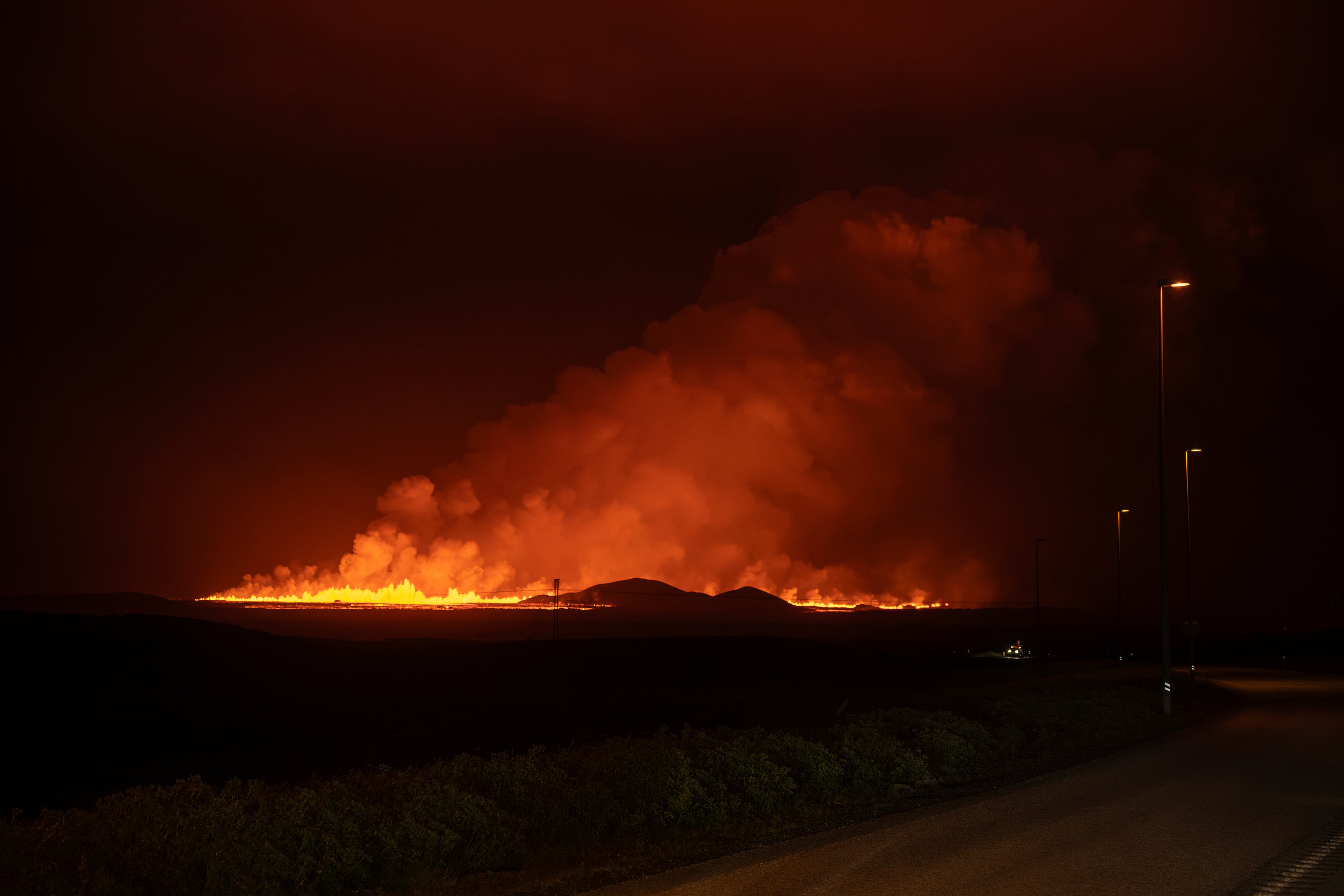
The fourth eruption occurred in March along Iceland’s Reykjavik peninsula, nearby the abandoned town of Grindavik while the fifth eruption was Sundhnúksgígar at noon on 29 May, with lava shooting 50 metres into the sky.
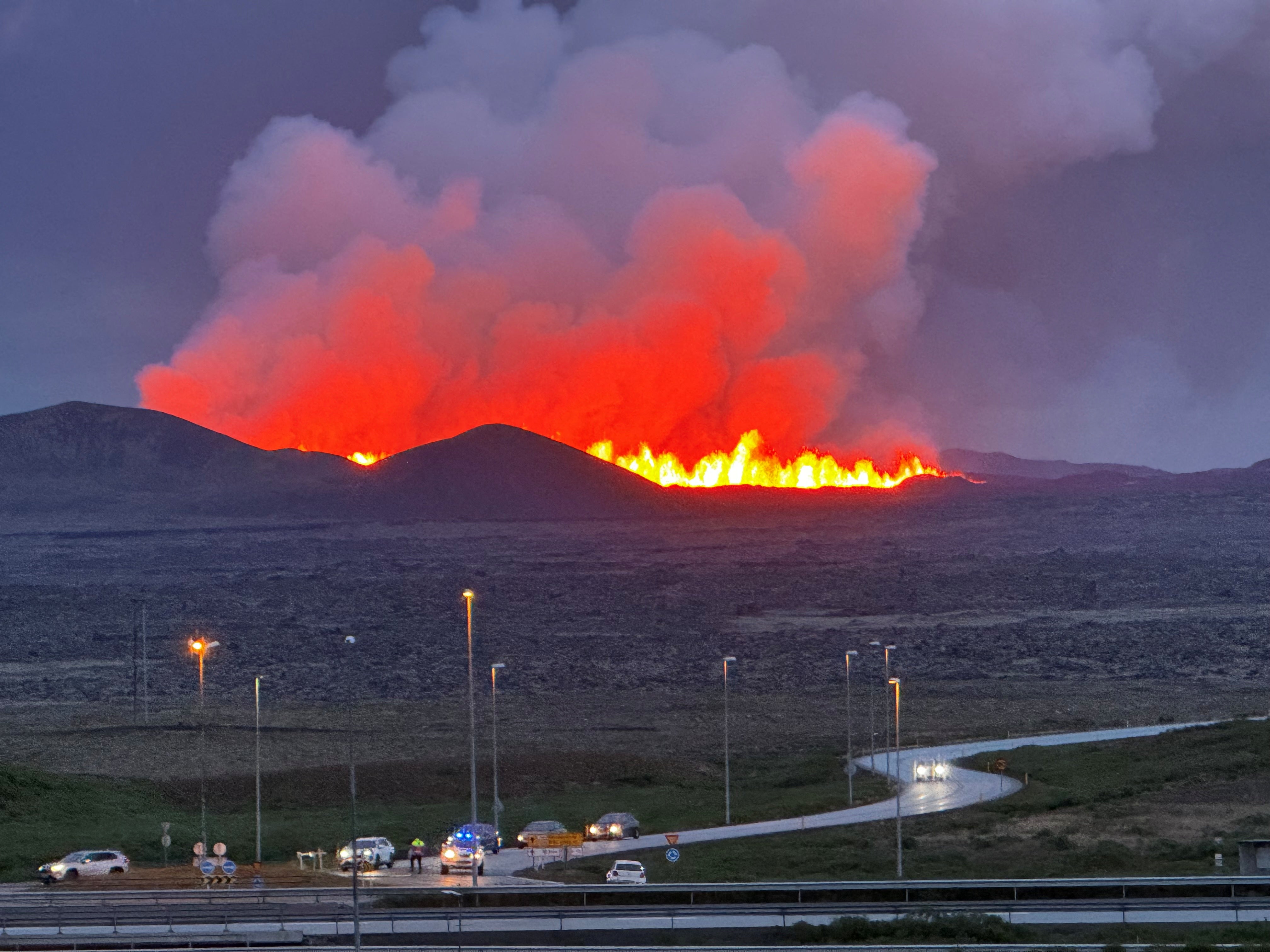
In response, authorities have constructed man-made barriers to redirect lava flows away from critical infrastructure, including the Svartsengi power plant, the Blue Lagoon outdoor spa and the town of Grindavik.
Flights were unaffected, Reykjavik’s Keflavik Airport said on its web page, but the nearby Blue Lagoon luxury geothermal spa and hotel said it had shut down and evacuated its guests.
With Iceland straddling two major tectonic plates, fissure eruptions are a regular feature, and typically do not result in large explosions or significant production of ash dispersed into the stratosphere.
Though the impact is often highly localised, an increased number of eruptions over recent years has attracted attention internationally, making it a prime destination for volcano tourism – a niche segment that attracts thrill seekers.

Join our commenting forum
Join thought-provoking conversations, follow other Independent readers and see their replies
Comments